Educational Robotics and 3D Technology in Practice: International BIP Programme at the Faculty of Central European Studies
From 9 to 13 June 2025, the Faculty of Central European Studies and its Institute for Teacher Training at Constantine the Philosopher University in Nitra organised the first Erasmus+ Blended Intensive Programme (BIP) in the history of the university, focusing on innovative ways to develop algorithmic thinking. The programme aimed to provide participating students with hands-on experience in applying educational robotics and 3D technology in primary schools. [Detailed Information about the Programme: https://www.fss.ukf.sk/en/international-relations/bip-en]
Twenty students from three partner institutions—Eötvös Lóránd University (Budapest), Apor Vilmos Catholic College (Vác), and Partium Christian University (Oradea)—took part in interactive workshops as part of the BIP. Here, they were introduced to the educational applications of 3D printing, Ozobot, BeeBot, and LEGO robots. Throughout the programme, students not only acquired theoretical knowledge but also had the chance to observe their learning in a real-life environment.
At the opening ceremony, the hosts welcomed the participants and briefly presented the faculty's teaching and research orientations. This was followed by a playful and interactive session designed to help students become better acquainted with each other. In the afternoon, students participated in workshops. The evening programme was organised by JUGYIK members, allowing the visiting students to gain insight into Hungarian student life in Nitra.
On the second day, the International Relations Office introduced our university, followed by three workshops for the students. The sessions covered topics such as 3D printing, LEGO robots, unplugged coding, and the use of floor robots, catering to beginner and advanced levels. In the afternoon, students participated in a guided tour of the city. At the same time, the lecturers' forum addressed current challenges in teacher and kindergarten teacher training, as well as opportunities for international cooperation.
On the third day, the participants visited the Aurelium Science Adventure Centre in Bratislava, where they were treated to a spectacular laser show, interactive exhibits and entertaining experiments. In the afternoon, the participants engaged in a professional and enjoyable sightseeing tour guided by Bratislavské rožky (civic association), and the day concluded with a dinner together, which offered an excellent opportunity for informal discussions.
On the fourth day, the students visited Hungarian primary schools in Vozokany and Búč, where they observed the practical application of educational robotics. The STEAM activities, facilitated by various digital tools, centred on literacy learning, storytelling, English comprehension, aquatic ecosystems, and nature conservation for young students. In the spirit of digital creativity pedagogy, older pupils showcased their micro-projects and digital theme week activities, which involved tackling challenges that focused on algorithmic thinking, creative problem-solving, and collaborative work. During the afternoon, BIP participants began working in teams of four on their projects, which aimed to creatively apply the knowledge they had acquired throughout the week to their teaching.
On the final day, the students presented their projects and received their diplomas from the Vice-Rector for International Relations at our University. The experiences and lessons learned throughout the week have enriched the participants both professionally and personally.
In conclusion, the participating students were asked to describe their experiences and evaluate the programme. The responses revealed a very positive and varied picture, using terms such as exciting, experiential, educational, developmental, and collaborative. The students highlighted the community-building power of the programme, describing the atmosphere as friendly, cohesive and family-like. Many also emphasised the highly professional and creative approach. Feedback suggests that the programme has not only provided knowledge but also lasting experiences and valuable personal connections.
We would like to express our gratitude to the partner institutions for their active participation, the university management for the opportunity to implement the programme, the primary schools for showcasing good practice in the use of digital tools in education, and the students of JUGYIK for their enthusiastic and dedicated organisational support.
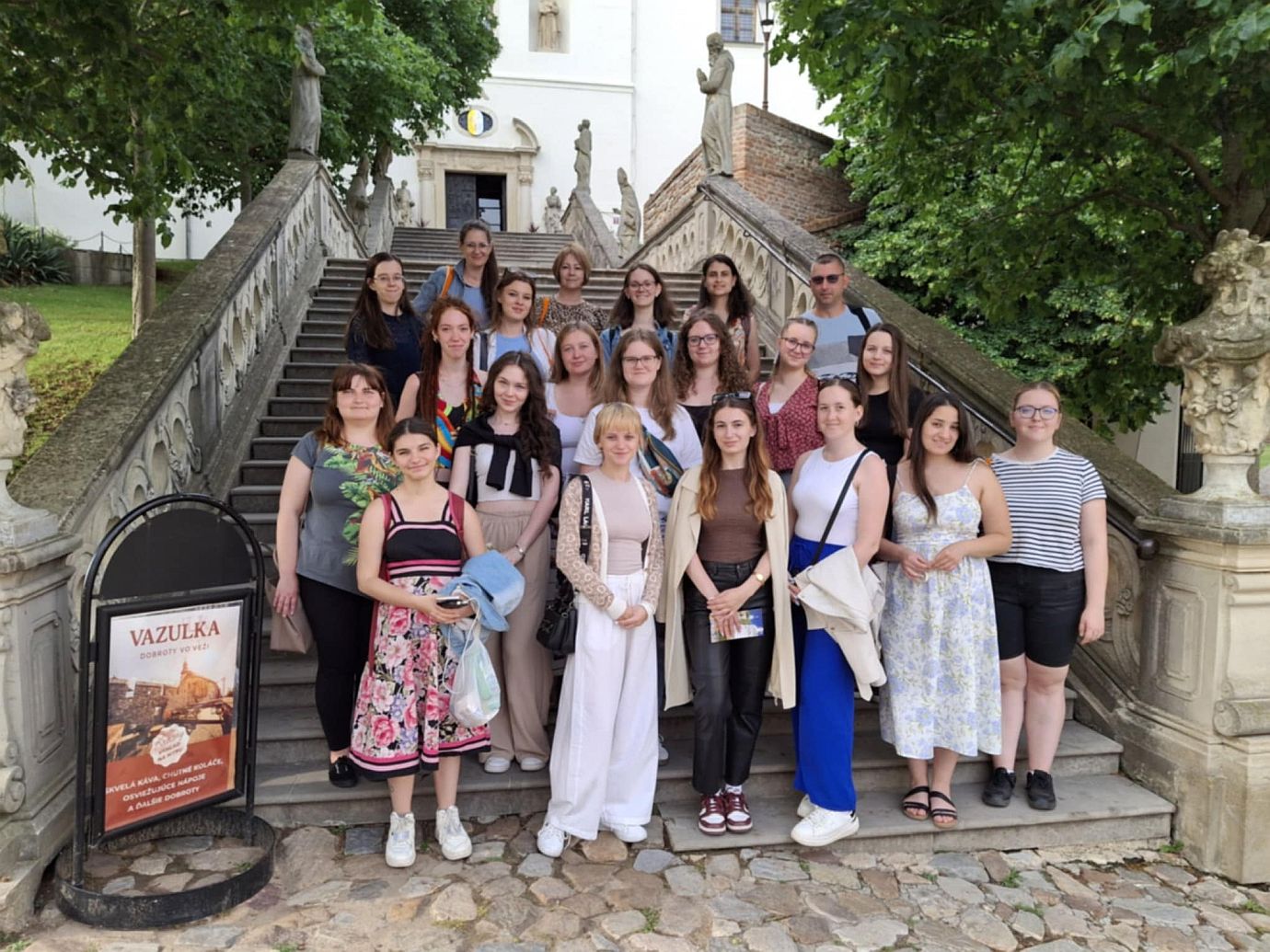
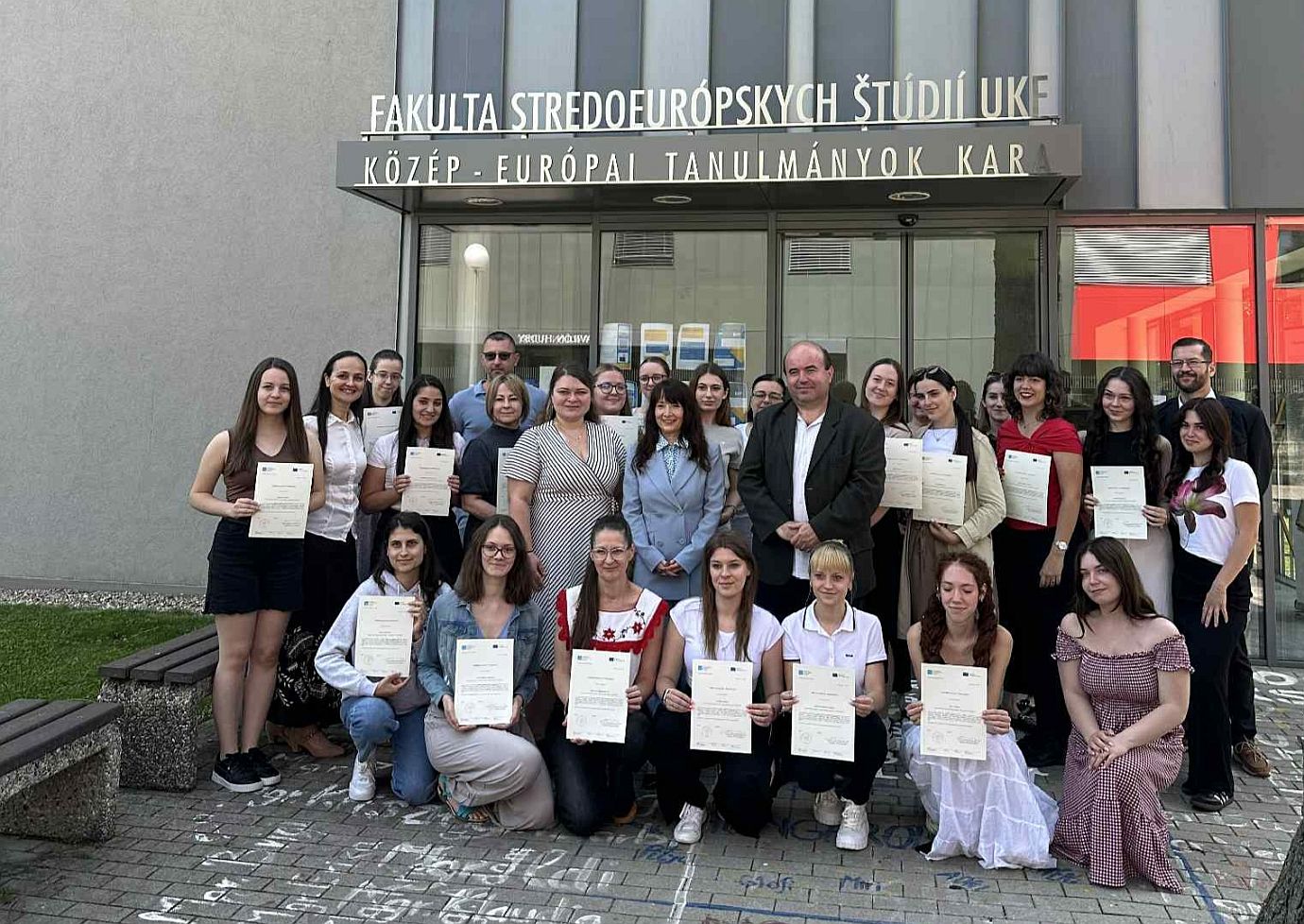
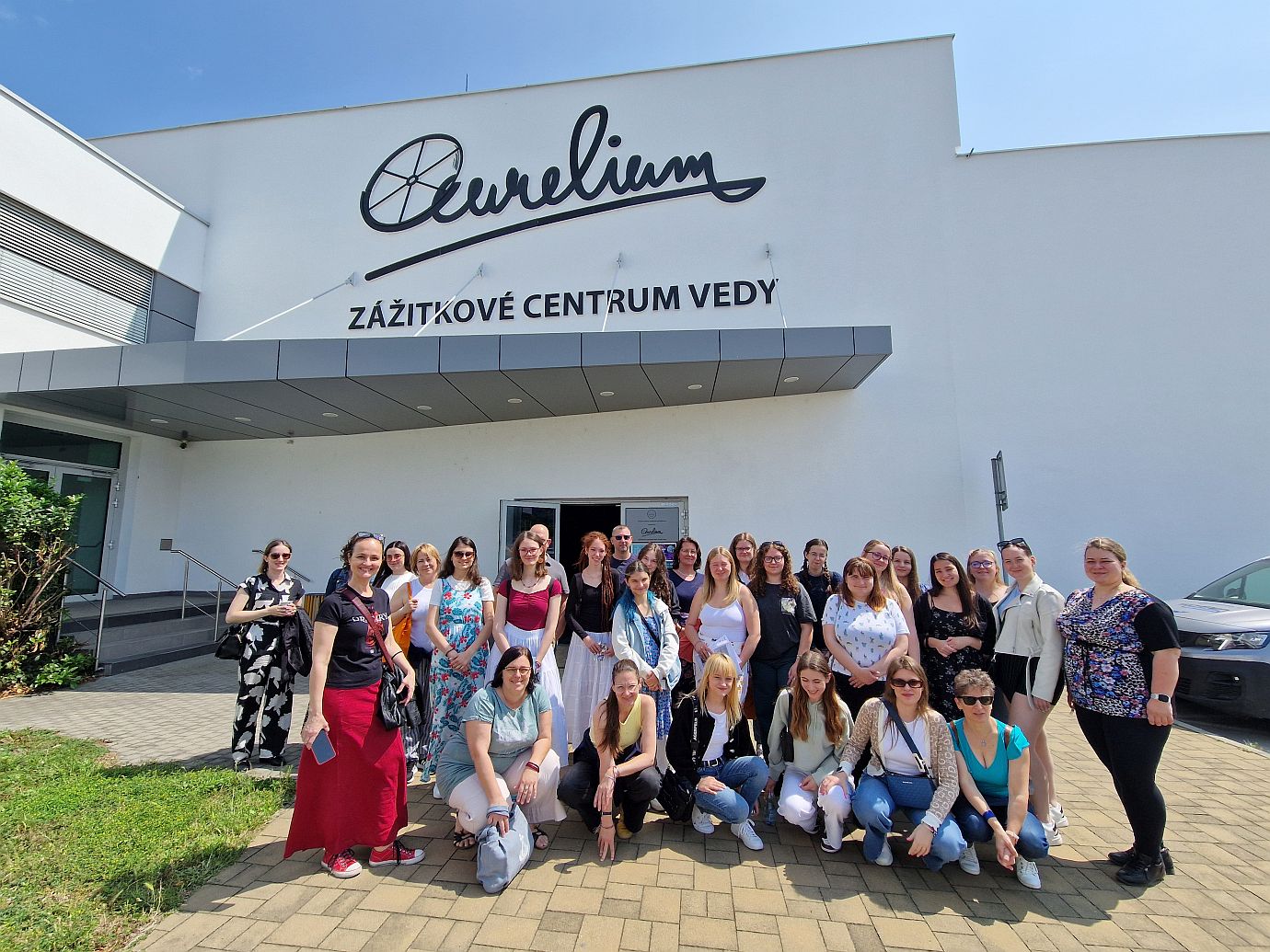
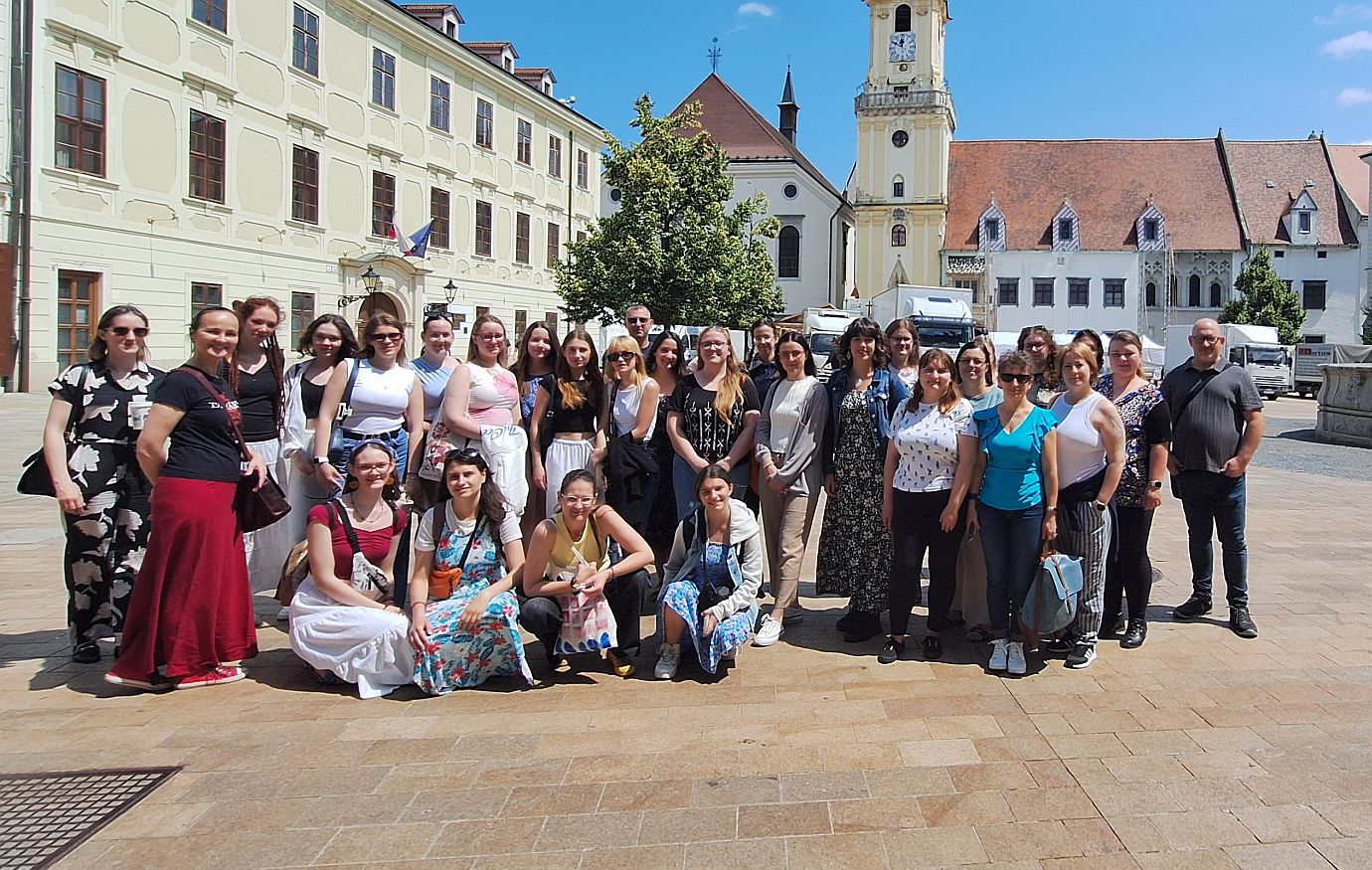
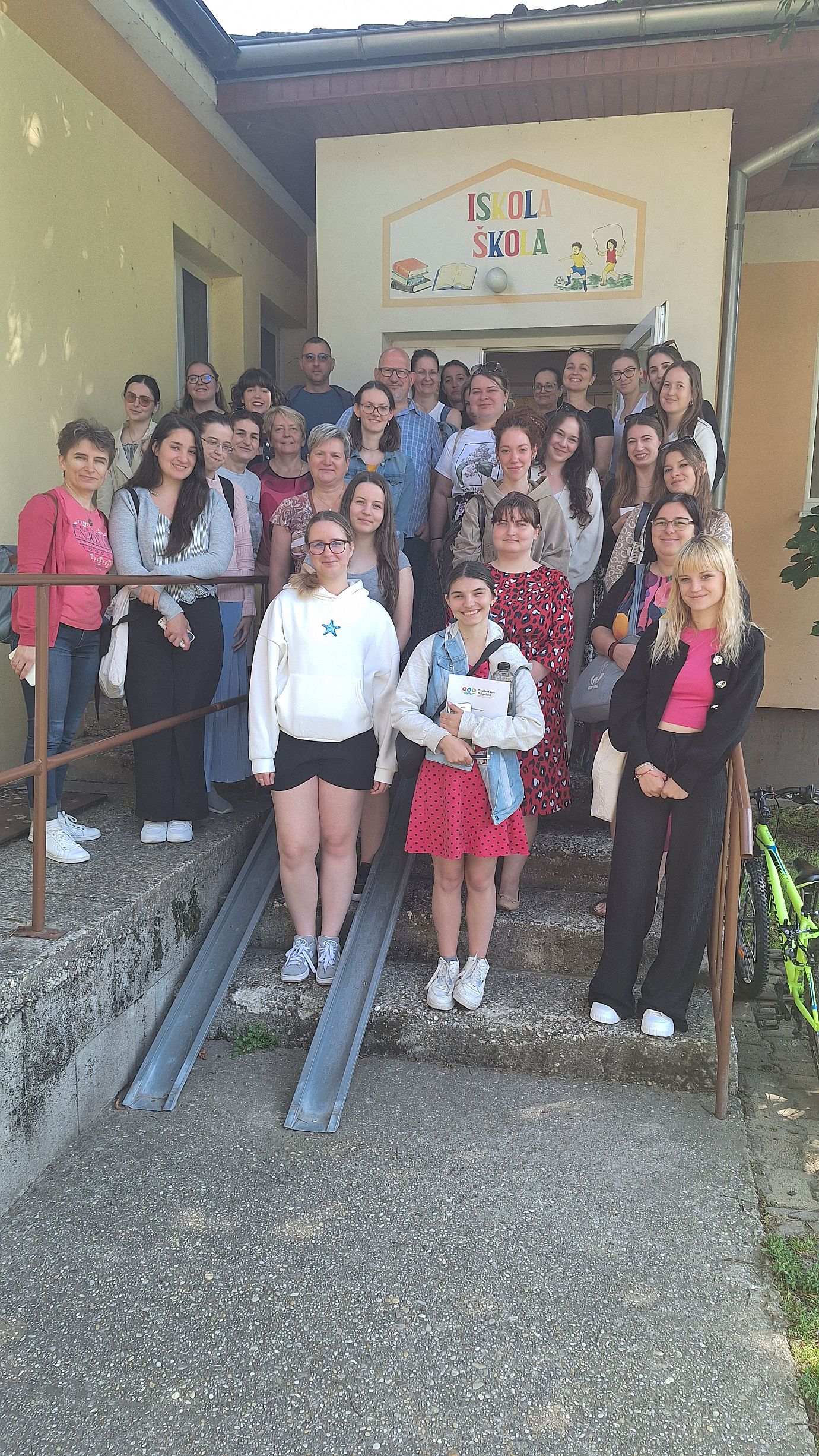
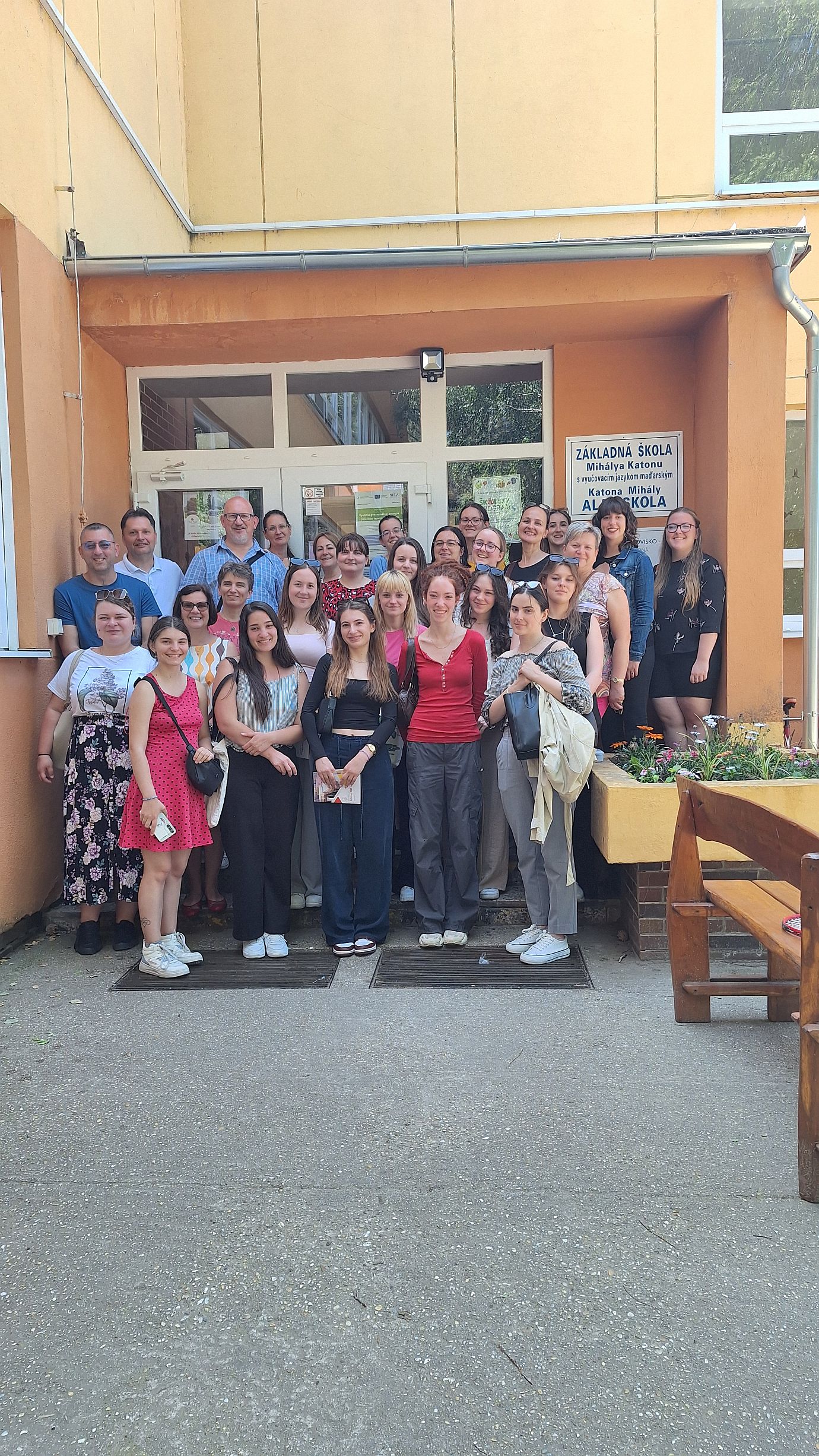
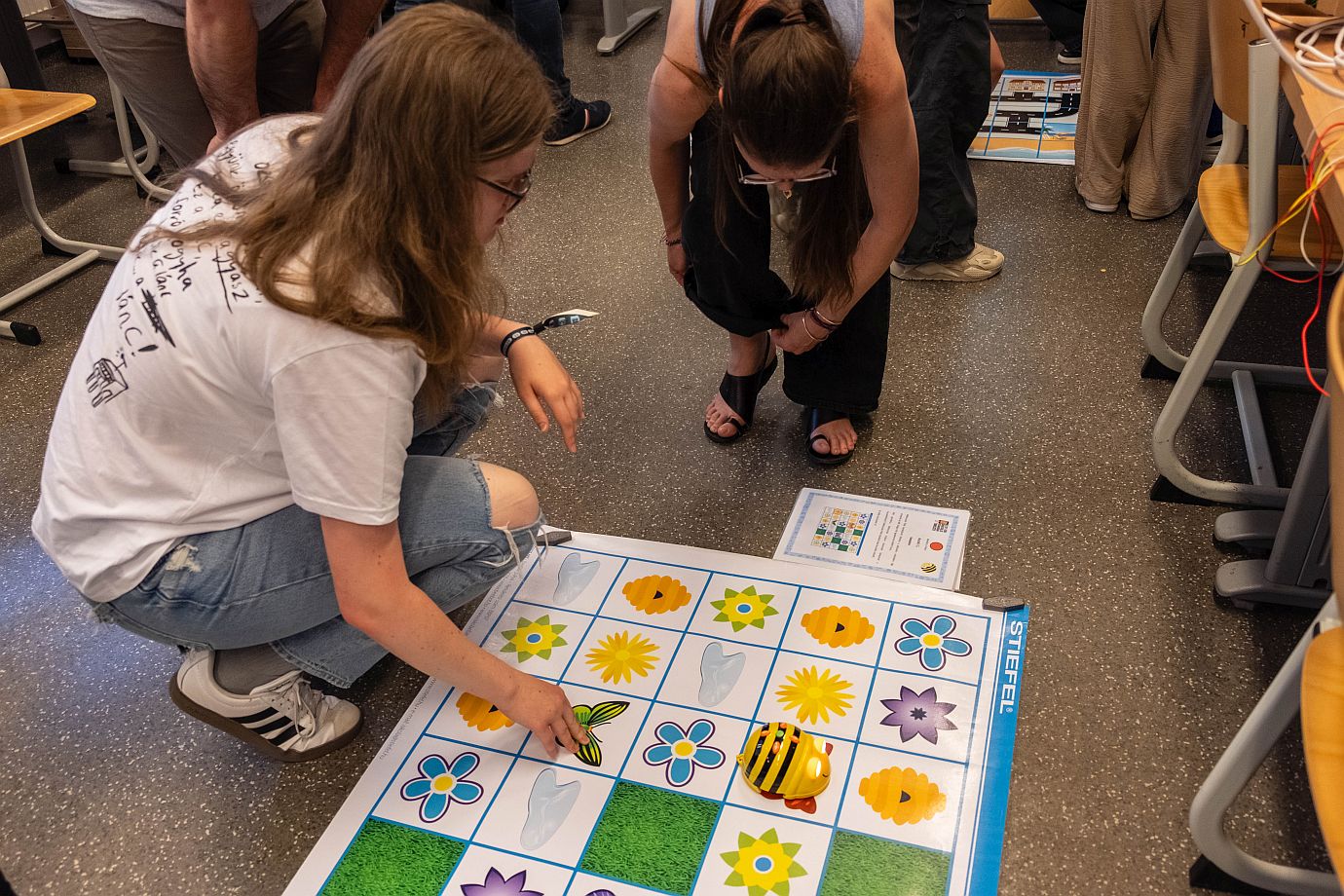
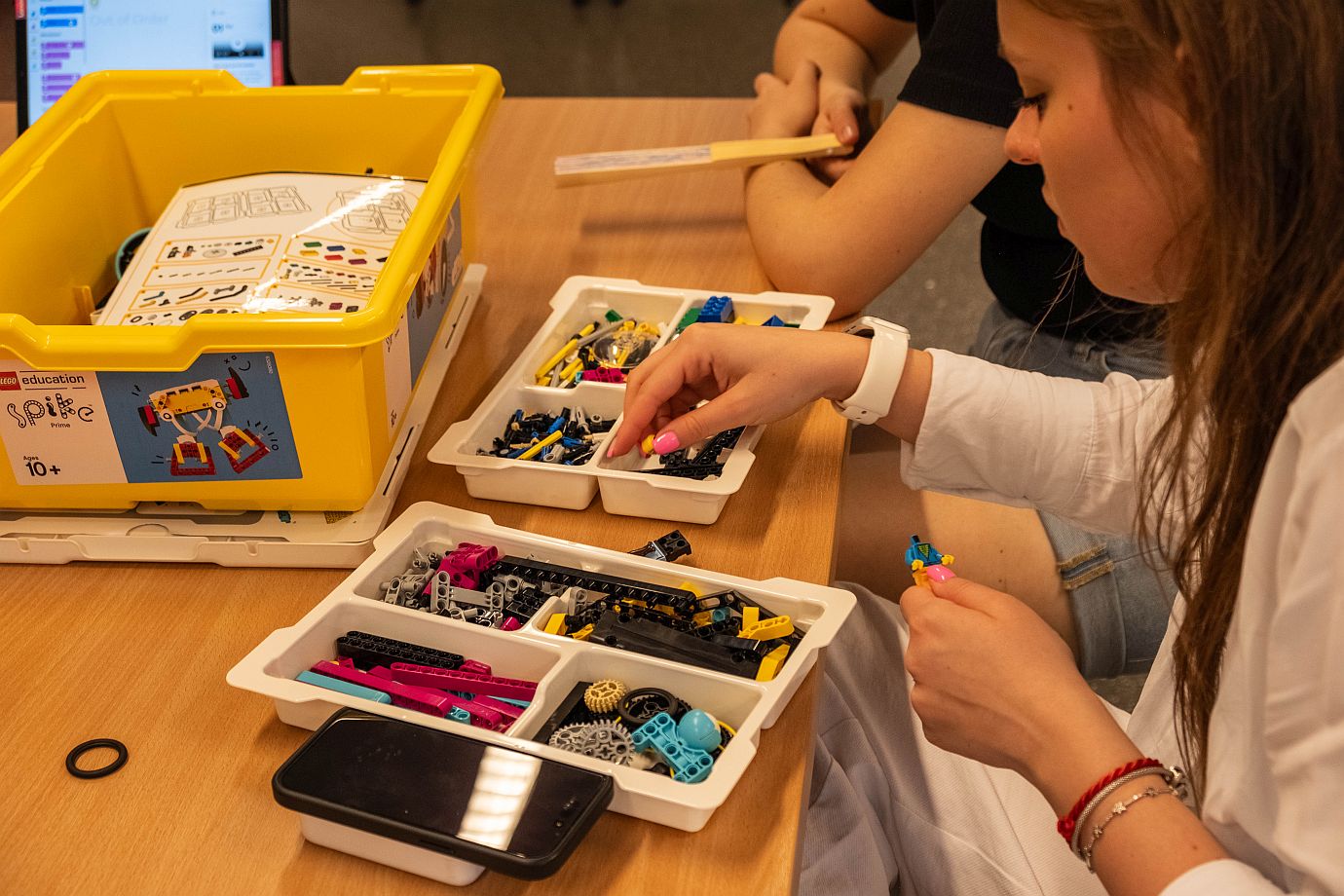
Text: Viktória Gergely and Orsolya Hegedűs
Photos: Faculty of Central European Studies BIP archive




